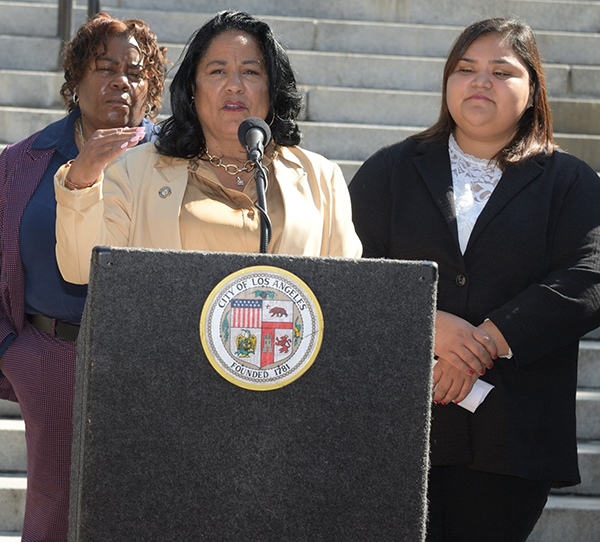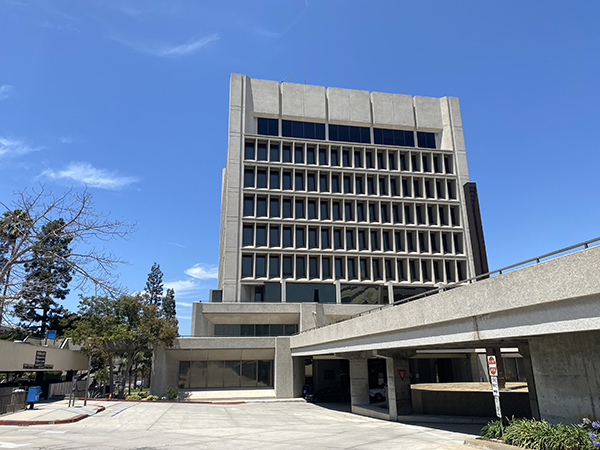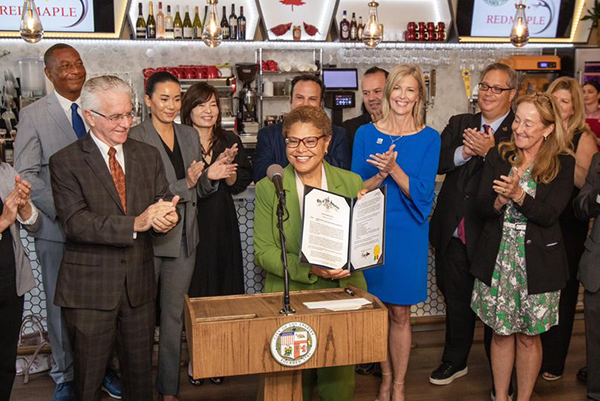Wave Staff and Wire Reports
LOS ANGELES — Mayor Karen Bass signed her fourth executive directive June 22 to promote small business creation, development and growth throughout the city.
Bass signed Executive Directive No. 4 in Toluca Lake alongside Council President Paul Krekorian, regional and local business owners. The directive establishes the Los Angeles Business Steering Committee, intended to bring leaders from city departments together to identify barriers to opening and operating small businesses.
“People want to start and grow their businesses in Los Angeles, but over the years, City Hall has made those dreams harder to achieve by requiring fees upon fees and a complicated and time-consuming approval process,” Bass said in a statement.
“It’s past time to make it easier for small and minority businesses to do business in L.A., which is why executive directive No. 4 is an important first step in a series of initiatives that put City Hall on a path to being a partner to attracting and retaining small business instead of a barrier,” she added.
The directive states that there are more than 460,000 businesses in the city, the majority of which are small businesses that were heavily impacted by the COVID-19 pandemic.
According to data from the city, small businesses represent 99% of businesses that have opened in the city since 2022, and are responsible for 63% of net new jobs.
The Los Angeles Business Steering Committee will be composed of representatives from L.A. city departments and led by the mayor’s Office of Business and Economic Development.
The committee will be charged with evaluating the current state of commerce in the city and offer recommendations to support businesses, including:
• Reviewing and assessing taxes and fees associated with businesses.
• Identifying reductions in fees that may result in business creation and growth.
• Assessing existing processes and timelines for starting a business.
• Developing a streamlined approach for navigating city processes.
• And evaluating how other cities’ approach business growth and to determine best practices.
Krekorian said in a statement that the City Council introduced programs to support small business owners, including reforming the city’s procurement process and the Restaurant Beverage Program — a streamlined approach to obtaining onsite liquor license.
The mayor’s directive will be a “great help in reducing unnecessary obstacles to starting business or staying in business right here in Los Angeles,” Krekorian added.
The Los Angeles Business Steering Committee will report back on its initial findings within 90 days.
Brian Veskosky, co-owner of Red Maple in Toluca Lake, who attended the mayor’s event, said in a statement that the directive will make it “easier and more accessible for businesses to open up and stay in Los Angeles.”
“Opening a business in L.A. was a priority for us, so when my business partner and I found a space in Toluca Lake, we were ecstatic,” Veskosky said. “I want to see other businesses like ours thrive, despite rules and regulations that oftentimes make it hard for our small businesses to flourish.”
Tracy Hernandez, founding CEO of BizFed, said the mayor’s plan directly addresses small business concerns that recent polling shows have pushed employers out of California.
“This executive directive is an investment in the city’s homegrown talent and a roadmap to create better conditions for success,” she said.
Maria S. Salinas, president and CEO of the Los Angeles Area Chamber of Commerce, applauded Bass for prioritizing the health of small businesses and entrepreneurs interested in starting a business in Los Angeles.
“Mayor Bass understands the importance of the small business economy to grow and create jobs in the city of Los Angeles,” Salinas said. “This approach … will help to reinforce the region’s competitiveness, as well as provide the infrastructure to attract new firms while lowering the barriers to entrepreneurship for homegrown talent.”
Mary Leslie, president of the Los Angeles Business Council, supported the mayor’s plan “for taking an expansive and cross-departmental approach to creating strong policies that support small businesses, and in turn, increase investment in diverse communities throughout the city.”









